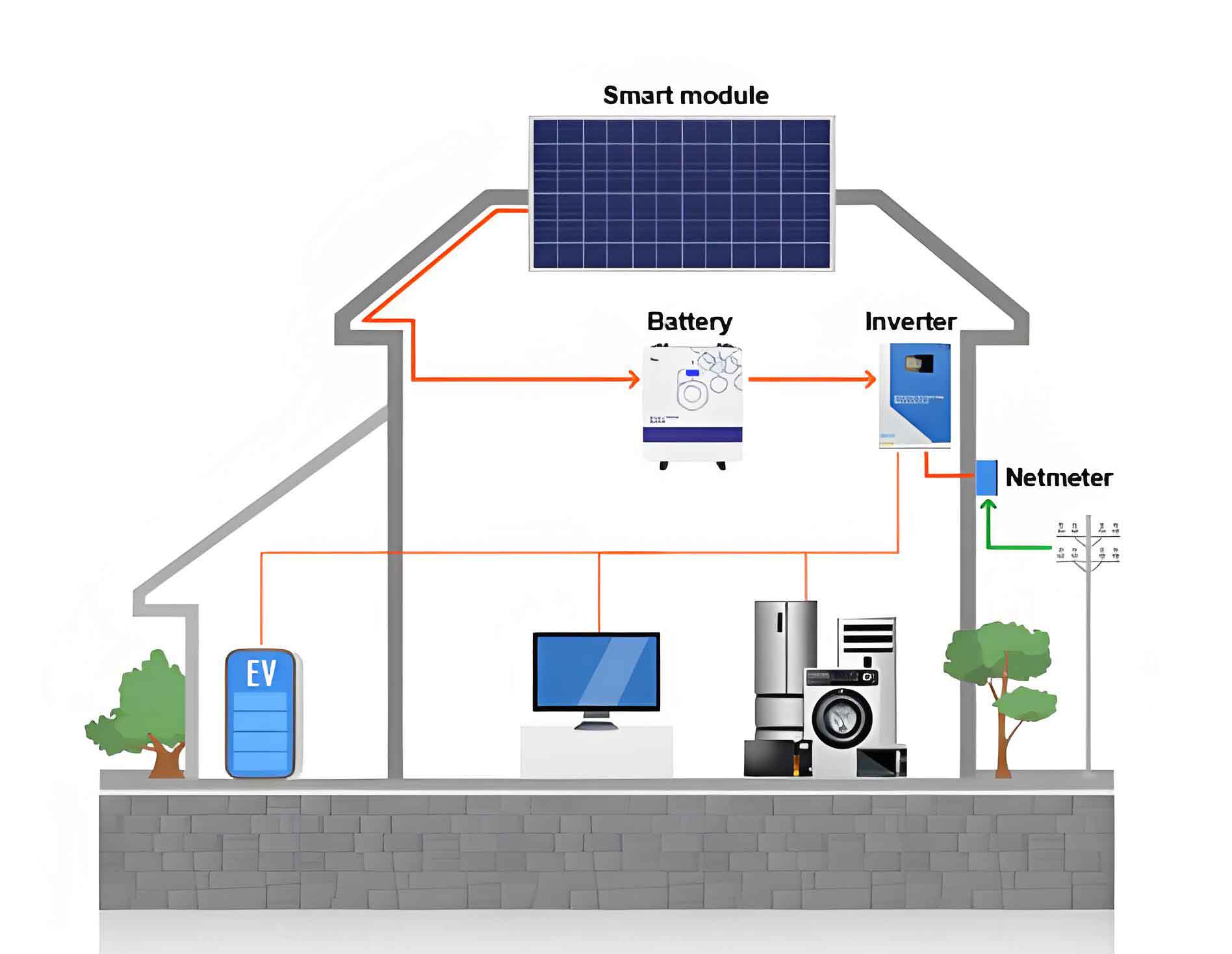
Introduction
Solar power has become a cornerstone of the global transition towards renewable energy sources. At the heart of this transition lies the solar power inverter, a device that converts the direct current (DC) generated by solar panels into alternating current (AC) for use in homes and businesses and for feeding into the power grid. As the demand for solar energy grows, so does the need for advanced solar power inverter technologies that can efficiently manage and optimize the conversion and distribution of solar power. This article provides a comprehensive review of the current trends in solar power inverter technologies and explores the future directions of this essential component in the solar energy ecosystem.
Current Trends in Solar Power Inverter Technologies
The solar power inverter industry is experiencing rapid innovation and growth. Several key trends are shaping the development of advanced solar power inverters:
- Increased Efficiency: Modern solar power inverters are designed to maximize the efficiency of energy conversion. This involves the use of advanced algorithms and high-quality components to minimize energy losses during the conversion process.
- Grid Support Capabilities: To enhance grid stability and reliability, many solar power inverters now include grid support functions such as voltage regulation, frequency control, and reactive power compensation. These features enable solar power inverters to contribute to the overall health of the power grid.
- Integration with Energy Storage Systems: Hybrid solar power inverters that combine solar energy conversion with battery storage capabilities are becoming increasingly popular. These inverters allow for the storage of excess solar energy and its use during periods of low solar production or high energy demand.
- Advanced Monitoring and Communication: The incorporation of advanced monitoring and communication technologies in solar power inverters enables real-time data collection, remote diagnostics, and performance optimization. This connectivity is crucial for the integration of solar power inverters into smart grids.
- Modular and Scalable Designs: To accommodate different installation sizes and configurations, modern solar power inverters are often designed to be modular and scalable. This flexibility allows for easier upgrades and expansions of solar power systems.
Key Features of Advanced Solar Power Inverters
| Feature | Description |
|---|---|
| High Conversion Efficiency | Utilizes advanced technologies to achieve high conversion efficiency, reducing energy losses. |
| Grid Support Functions | Includes features such as voltage regulation, frequency control, and reactive power compensation to support grid stability. |
| Energy Storage Integration | Combines solar energy conversion with battery storage capabilities for enhanced energy management. |
| Remote Monitoring and Diagnostics | Enables real-time data collection, performance monitoring, and remote diagnostics via internet connectivity. |
| Modular and Scalable Design | Allows for flexible installation and easy expansion of solar power systems. |
Advantages of Advanced Solar Power Inverters
The adoption of advanced solar power inverters offers several benefits, including:
- Enhanced Energy Efficiency: Advanced solar power inverters ensure that the maximum amount of solar energy is converted and utilized, reducing waste and improving overall energy efficiency.
- Improved Grid Stability: By providing grid support functions, solar power inverters help maintain the stability and reliability of the power grid, particularly as the penetration of solar energy increases.
- Optimized Energy Management: The integration of energy storage capabilities allows for better management of energy supply and demand, enabling the use of stored solar energy during periods of low production or high demand.
- Real-Time Performance Monitoring: Advanced monitoring and communication features allow for real-time tracking of solar power system performance, facilitating prompt detection and resolution of issues.
Future Directions in Solar Power Inverter Technologies
The future of solar power inverter technologies is poised to bring even more advancements and innovations. Key areas of focus include:
- Artificial Intelligence and Machine Learning: The incorporation of artificial intelligence (AI) and machine learning (ML) into solar power inverters is expected to enhance their ability to predict and optimize performance, improving efficiency and reliability.
- Advanced Grid Integration: As smart grid technologies continue to evolve, solar power inverters will play an increasingly critical role in grid management and support. Future inverters will likely feature enhanced communication protocols and capabilities to seamlessly integrate with advanced grid infrastructures.
- Enhanced Cybersecurity: With the growing connectivity of solar power inverters, ensuring robust cybersecurity measures will be essential to protect against potential cyber threats and vulnerabilities.
- Improved Durability and Lifespan: Ongoing research and development efforts aim to improve the durability and lifespan of solar power inverters, reducing maintenance costs and extending the operational life of solar power systems.
- Cost Reduction: As technology advances and economies of scale are realized, the cost of advanced solar power inverters is expected to decrease, making them more accessible to a wider range of consumers.
Conclusion
The evolution of solar power inverter technologies is a testament to the rapid advancements in renewable energy solutions. By embracing the latest trends and innovations, solar power inverters are becoming more efficient, reliable, and integral to the integration of solar energy into modern power grids. As we look to the future, the continued development of advanced solar power inverters will be crucial in driving the global transition towards a sustainable and resilient energy future. Through enhanced efficiency, grid support capabilities, and integration with energy storage systems, solar power inverters will play a pivotal role in the ongoing transformation of the energy landscape.
